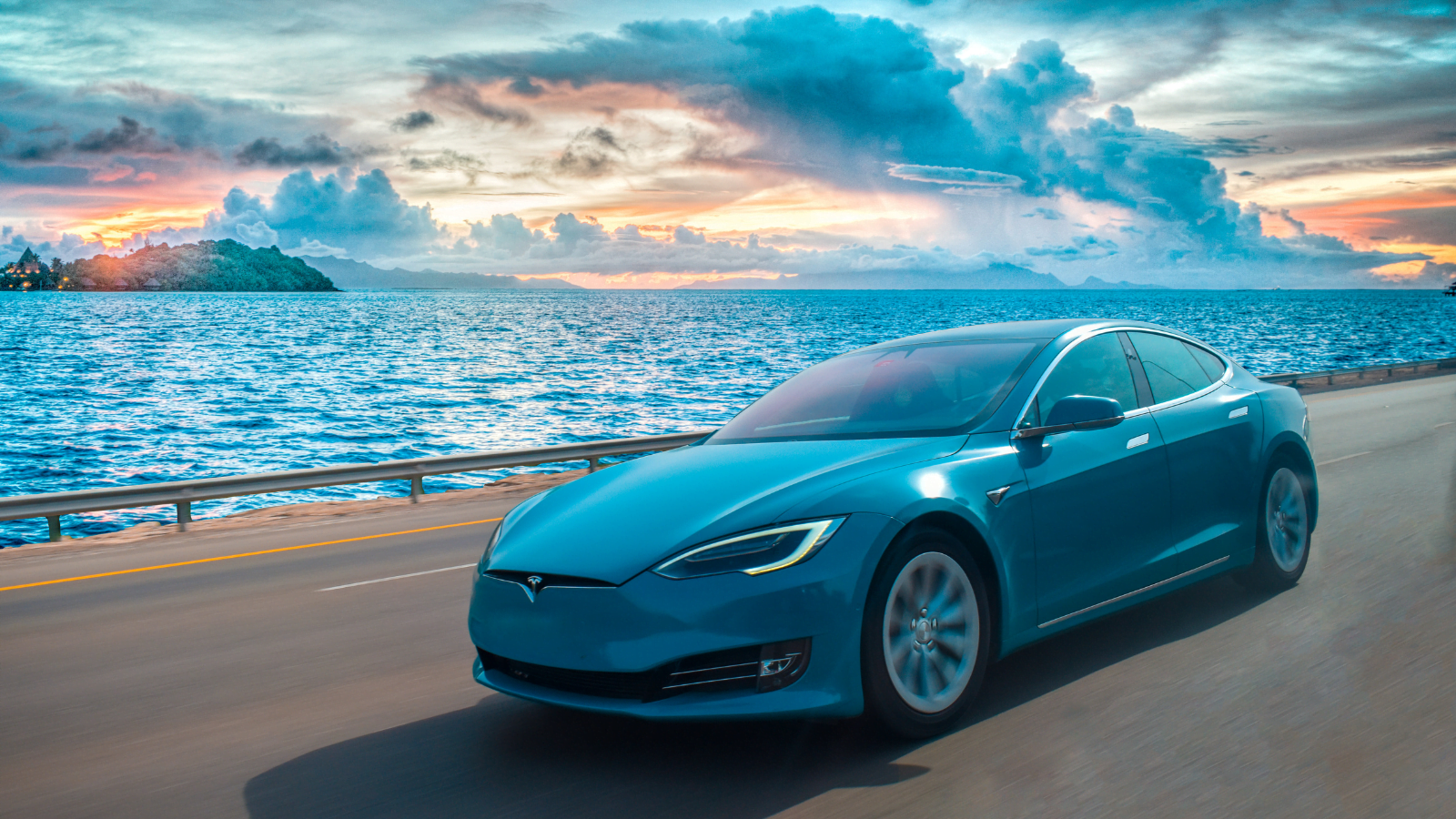While deciding between vehicles at a dealership, you’re suddenly affected by new tariffs. With global economic uncertainty, Canada’s car market faces significant changes. We looked at what 22 auto industry experts said about how these price-increasing tariffs will impact our automotive market.
Dr. Leslie Corrigan – Economist, Canadian Auto Council

Dr. Leslie Corrigan, a leading economist at the Canadian Auto Council, emphasizes that the recently imposed 25% U.S. tariffs on Canadian automotive imports pose a significant threat to Canada’s car market. Since approximately 85% of vehicles produced in Canada are exported, with 91.8% destined for the U.S., these tariffs could severely disrupt trade flows. The resulting price increases, up to $9,000 per vehicle, are expected to dampen consumer demand and strain the integrated North American supply chain.
Martin DeVries – VP of Global Strategy, Northern Motors

DeVries believes tariffs will cause a shift toward domestic assembly. “Expect automakers to eye Ontario the way Americans eye our healthcare system—with envy and mild confusion.” He also notes potential opportunities: Canadian battery suppliers and Tier-2 part makers may benefit as automakers seek local alternatives to avoid tariff penalties. However, Canadian Vehicle Manufacturers’ Association analysts echo concerns, predicting supply chain realignments and delayed model rollouts.
Anita Ghali – Auto Trade Analyst, Montreal Economic Institute

“Expect the used car market to balloon like a moose in mating season,” Ghali quips. Industry experts also predict that these tariffs could add up to $6,250 to the cost of vehicles imported into the U.S., making Canadian-made cars less appealing to American consumers. This price surge is expected to result in a significant drop in vehicle sales, with forecasts indicating a potential decrease of up to 2 million units in the U.S. market this year.
Doug Yamamoto – Head of North American Sales, AutoTrak

“Cross-border shoppers will get creative,” says Yamamoto. He foresees a rise in consumers importing vehicles directly from the U.S. despite red tape, like it’s Black Friday every day, but with more paperwork and less camping. But, the Canadian automotive sector, which supports over 125,000 direct jobs and accounts for more than 10% of intraregional trade in North America, faces significant challenges ahead.
Bernice McLaughlin – CEO, GreenAuto

McLaughlin warns that electric vehicles could suffer. Many EV components come from abroad. “Batteries don’t grow on trees, and most aren’t made in Saskatchewan,” she says. Tariffs could increase EV costs by 12-18%. Further, McLaughlin advocates for strategic investments in domestic electric vehicle production and supply chain resilience to mitigate these challenges. She emphasizes Canada’s need to adapt swiftly to maintain its position in the global automotive market.
Kiran Mistry – Policy Director, Canadian Vehicle Manufacturers Association

Kiran Mistry, Policy Director at the Canadian Vehicle Manufacturers Association (CVMA), has emphasized the significant challenges U.S. tariffs pose on Canada’s automotive sector. The imposition of a 25% tariff on Canadian vehicle exports disrupts the deeply integrated North American auto industry, where parts often cross borders multiple times during production. This disruption threatens over 130,000 direct manufacturing jobs in Canada and could increase consumer vehicle prices due to higher production costs.
Mike Rielly – President, Automotive Retailers of Canada

Rielly says the retail sector is preparing for sticker shock. “Dealerships are stocking up like it’s the apocalypse—except instead of canned beans, it’s Hyundai Elantras.” Economists also predict a significant contraction in vehicle sales across North America, with estimates of up to 2 million fewer auto sales in the U.S. and Canada in 2025. Canadian consumers may face price increases ranging from $1,750 to $10,000 per vehicle, prompting a shift towards the used car market.
Sylvie Tremblay – Lead Auto Analyst, Québec Institute for Public Policy

“Expect regional differences,” says Tremblay. Québec may weather the storm better due to a higher rate of public transit usage and domestic assembly options. Canadian autoworkers are already experiencing uncertainty, with reports of production slowdowns and temporary layoffs. Additionally, the tariffs may cause vehicle prices in Canada to rise by as much as $6,250, further straining affordability. These developments underscore the profound challenges facing Canada’s car market amid escalating trade tensions.
Henry Blume – Senior Consultant, PriceWorks Canada

A 25% U.S. tariff on Canadian auto imports is poised to significantly disrupt Canada’s automotive industry. General Motors anticipates a per-vehicle cost increase of approximately $4,300 for cars manufactured in Canada and Mexico, potentially leading to higher consumer prices and reduced demand. S&P Global Mobility warns that such tariffs could add up to $6,250 to the price of a $25,000 vehicle, potentially causing a 15% decline in Canadian auto sales over several years. Blume also predicts rising lease costs. “Monthly payments could jump by $75 to $120. That’s a lot of Timbits,” he laments.
Paige Chen – Import/Export Consultant

“Luxury car buyers won’t feel the pinch as much,” Chen says. “If you’re dropping six figures on a Porsche, another $5K is just another line item.” The compounded effect threatens over 500,000 Canadian jobs in the automotive sector and may inflate vehicle prices by $1,750 to $10,000. Plus, Chen emphasizes the urgency for strategic trade negotiations to mitigate these impacts and stabilize the industry.
Alexei Dubov – Plant Operations Director, Maple Leaf Motors

Alexei Dubov, Plant Operations Director at Maple Leaf Motors, is navigating a bumpy road as Canada slaps a 100% tariff on Chinese electric vehicles (EVs) starting October 1, 2024. This move, aimed at countering China’s state-subsidized EV influx, adds to the existing 6.1% import duty, making Chinese EVs pricier than a luxury moose saddle. The government also limits EV incentives to vehicles from countries with free trade agreements, effectively sidelining China.
Renata Alvarez – Transportation Policy Expert, University of British Columbia

According to Alvarez, tariffs—especially those between Canada, the U.S., and other trade partners—are about as welcome in the car market as potholes in February. She warns that these import taxes could hike vehicle prices by 10–25%, leaving Canadian car buyers clutching their wallets and reconsidering that shiny new crossover. Alvarez also quips that if the tariffs go through, “Your next ride might just be a bicycle—or a very polite moose.” Let’s hope Ottawa keeps its foot on the brake.
Gordon Patel – Fleet Manager, GoNorth Logistics

Gordon Patel, Fleet Manager at GoNorth Logistics, has been shifting gears fast as tariffs threaten to sideswipe Canada’s auto market. Parts, you ask? Oh, they’re caught in traffic too. Roughly 75% of car components cross the U.S.-Canada border multiple times (Automotive Parts Manufacturers’ Association), meaning tariffs could clog the pipeline worse than Monday rush hour. Still, Patel remains upbeat. “We’ll adapt—we’re logistics people. Panics for passengers.”
Carmen Letourneau – Editor, AutoScope Magazine

Canada’s auto industry is navigating a pothole-ridden road, thanks to a 25% U.S. import tariff making car prices soar like a Tesla on Ludicrous Mode. Experts predict this could add up to $6,250 to the cost of a new vehicle, leaving consumers clutching their wallets tighter than a seatbelt during a crash test. In response, Canada has slapped its 25% tariffs on U.S. vehicles, turning this trade tiff into a full-blown tariff tango.
Steven Wu – CFO, Polar Automotive Group

Steven Wu, CFO of Polar Automotive Group, says Canada’s car market is about to get a turbocharged shake-up thanks to new tariffs. “Think sticker shock with a side of maple syrup,” he quips. Wu warns this could stall Canada’s EV adoption—ironic, given Ottawa’s push for net zero by 2050. “We wanted cleaner cars, not pricier ones,” he chuckles. Brands like BYD and NIO may hit the brakes when entering the market, while North American automakers brace for a bumpy ride.
Zoe Kingsley – Auto Journalist, The Torque Times

Canadian dealers, already juggling EV transitions, are bracing for inventory hiccups and price hikes that might make your next test drive feel like a luxury experience. Meanwhile, local manufacturers like GM and Toyota Canada might get a sales boost—silver lining alert! But consumers? They’re stuck in neutral. As Flavio Volpe from the Automotive Parts Manufacturers’ Association quipped, “Tariffs are the kale of economics—nobody wants them, but they keep showing up on the plate.”
Dave Moffat – VP of Sales, ArcticDrive

With new import tariffs on EVs and auto parts (thanks to some international trade drama), prices could climb faster than a Tesla in Ludicrous Mode. According to Statistics Canada, car imports topped $73 billion in 2023; slap a 20% tariff on that, and you’ve got a juicy $14.6 billion problem. Consumers might start eyeing used cars—or even bikes (gasp!). Moffat adds, “It’s a shake-up, but hey, maybe this finally gets Uncle Rick to stop hoarding those old Camry parts.”
Marina Solovyov – Chief Data Scientist, Autonoma AI

Marina Solovyov, Chief Data Scientist at Autonoma AI, states that Canada’s new 100% tariff on Chinese electric vehicles (EVs) is akin to “slapping a ‘Do Not Enter’ sign on the Great Wall.” This hefty tariff, effective from October 1, 2024, aims to curb the influx of affordable Chinese EVs, like BYD’s Seagull, priced at a mere $13,000, into Canada’s market, where the average EV costs around C$70,000. However, critics argue that such steep tariffs might be more about protectionism than fair play, potentially stifling competition and keeping EV prices high for Canadian consumers.
Felix Dumont – President, Dumont Motors

Economist Andrew Foran warns of a “material contraction” in vehicle sales across North America, as parts often cross borders multiple times before final assembly. Flavio Volpe, President of the Automotive Parts Manufacturers Association, predicts a production halt if tensions persist. Canada’s move aligns with U.S. and EU actions against China’s market practices, aiming to protect domestic interests. However, consumers might feel the pinch with higher prices and limited options. As Dumont aptly says, “Brace yourselves; the road ahead is full of speed bumps.”
Tara Nduka – Economic Forecaster, ScotiaWheels

According to Tara Nduka, the car biz is about to get bumpier than a pothole-ridden back road. New tariffs on imported vehicles and parts could raise Canada’s auto prices by 10–15%, according to Canadian Vehicle Manufacturers’ Association estimates. “Brace yourselves,” warns Nduka, “because your dream SUV might soon cost as much as a starter home in Moose Jaw.”
Randy Cho – Union Representative, Canadian Auto Workers United

Randy Cho, the spirited union rep at Canadian Auto Workers United, raises concerns over the latest tariffs putting the brakes on Canada’s car market. With U.S. President Trump’s 25% tariff on imported vehicles, Canadian autoworkers are feeling the heat, facing production slowdowns and job insecurities. Cho sees silver linings. “It could mean better wages if companies bring production back to Canada. We’ve been ready to rev up since the ’08 recession.”
Johanna Picard – Supply Chain Strategist, TransNorth Group

Johanna Picard, a supply chain strategist at TransNorth Group, is bracing for a tariff tsunami that could turn Canada’s auto industry into a demolition derby. With U.S. President Trump’s proposed 25% tariffs on Canadian goods, the auto sector, where trade is as balanced as a yoga master, is on edge. TD Bank warns that relocating production back to the U.S. could cost US$50 billion, a price tag that would make even luxury car buyers wince. As Picard might quip, “Tariffs are like potholes on the highway to progress—jarring, costly, and best avoided.”
18 Budget-Friendly Electric Cars That Last Longer Than Their Loans — Economical Electrics

Electric vehicles are no longer a luxury for the elite—they’re a smart investment for the everyday driver. With manufacturers stepping up to the plate, affordable EVs now deliver on reliability, range, and modern comforts. Here’s a look at 18 economical electric cars engineered to outlast their payment plans.
18 Budget-Friendly Electric Cars That Last Longer Than Their Loans — Economical Electrics
